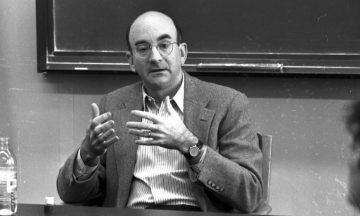 Eric Foner in The Nation:
Eric Foner in The Nation:
Alan Brinkley, who died on June 16 at the age of 70, was one of the most influential historians of his generation and a public intellectual whose writings helped to shape our understanding of modern American politics. His books are models of historical scholarship, written in a wonderfully accessible style. And, to employ a much-abused word, they are remarkably relevant. His central preoccupations—the strengths, limits, and vulnerabilities of the 20th-century American liberal tradition; the challenges to it, both internal and external; the connections between popular movements and political leadership; and the enduring legacies of the New Deal—are at the center of debate today.
The son of the prominent television newscaster David Brinkley, Alan Brinkley grew up in Washington in a household immersed in national politics. His first book, Voices of Protest, examined the 1930s careers of the popular demagogues Huey Long and Father Charles E. Coughlin. A winner of the National Book Award, it reflected his enduring interest in how modern communications media—in the case of Long and Coughlin, the radio—revolutionized the circulation of political ideas. He returned to this theme in his biography of Henry Luce, the founder of Time, Life, and other mass-circulation magazines.
In The End of Reform, Brinkley offered a pioneering account of how New Deal liberalism shifted in the late 1930s from a commitment to regulating and restructuring modern capitalism to acceptance of the corporate economy coupled with the hope that the fruits of economic growth stimulated by government spending would be widely shared.
More here.
